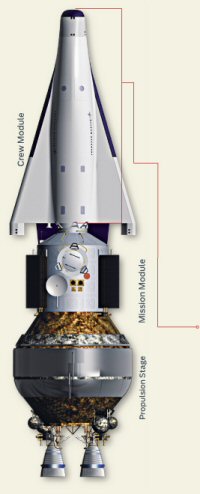It seems to me that sometimes, we resist change even when,
in the long run, it will benefit us. Perhaps because it is
seen as work to implement a change. Maybe because, in the
short-term, the change is not advantageous or because we
didn't initiate the change and we don't trust others who want
to force change upon us. Sometimes we resist change because
our eyes are clouded and therefore cannot see the good end result. Other times, we may may understand the need for
change, but stay silent out of respect for others who may not
understand and therefore be offended by such a change.
This may be one of those times in which all of the above
is occurring. However, I cannot remain silent because the
stakes are much too high and the damage that could result is
too great to stand by and watch a great institution be torn
apart.
Before I go farther [insert the standard disclaimer here],
I need to note, as I've noted before, that I attended the Kamehameha Schools (but did
not graduate from there), a private school founded in 1887
through the will of the last surviving royal descendant of King
Kamehameha -- Princess Bernice
Pauahi Bishop.
At the time I was there, in the early 1970's, the
Kamehameha Schools had only one campus and approximately
3,000 students (kindergarten through 12th grade) encompassing
all races, backgrounds, and religions (but with a preference
for native Hawaiians).
With that said, a brief history may be helpful to further
set the context of the situation.
Before the arrival of foreign peoples, as many as 800,000
native Hawaiians may have lived on these blessed islands
(pre-contact population estimates vary from a low of 200,000
to over 800,000. Compare this to the present day
total population of not just Hawaiians, of
about 1.2 million).
But due to our isolated location, Hawaiians, for
centuries, had no contact with other peoples and therefore
had built up no resistance to even what many consider to be
common childhood diseases. But after coming in contact with
such disease carrying foreign peoples in the late 1700s, the
population declined, in the span of just over one generation,
to less than 50,000.
Reacting in horror to the shocking and rapidly continuing
decline in the population of her people, the Princess
hastened to try, if possible, to provide for their
educational needs after the last of the Kamehameha line was
gone. One must remember that, due to this rapid decline, it
wasn't at all clear there would be any
native Hawaiians to educate after her death. Hence her will
did not say to educate only native Hawaiians, fearing there
wouldn't be any, rather only that preference should be given
to native Hawaiians, if any, and especially those who were
orphaned. But her other writings, and those of whom she spoke
to, seem to clearly indicate she was desperately trying to
spare as many native Hawaiians as she could, through
education, so that they would not disappear from the face of
the Earth.
For the more than two centuries since then, the Kamehameha
Schools/Bishop Estate (hereinafter Estate), the entity
created to fund the school, was cash poor but land rich.
Indeed, at the time of her death, Princess Pauahi owned
approximately one-tenth of all lands in the Hawaiian
islands.
However, because much of these lands were in remote areas
not immediately fit for habitation or set aside for watershed
or other conservation efforts revenues from said lands were
relatively small and therefore the school did not have the
resources to expand.
But some of the Estate's lands included prime properties
in Waikiki and the very expensive area called Kahala.
However, it is my understanding that the Estate leased these
lands at, for the most part, below market value. Why this was
done is a long and winding road down paths littered with
greed, politics, intrigue, double dealing, and Estate
trustees seemingly more concerned with lining their pockets
than educating children of Hawaiian ancestry.
That said, one of the lessons learned by native Hawaiians
was that land was the basis for all that exists. Without
land, you are nothing. Hence, we were loathe to part with any
land, even if it might be beneficial to do so in certain
instances.
When the Estate eventually began to raise lease rents to
market values, politically adept lessees became angry and
persuaded the local city council to pass an ordinance
requiring the Estate to sell certain lands in fee (the
lessees had to meet various requirements but having done so,
the Estate had to sell regardless of what the Estate wanted
to do).
Various native Hawaiian groups were up in arms and cried
over how their land was being stolen. Although it can be
argued that they were right, the forced selling of the land
was found legal.
If there was a silver lining to this dark cloud, the
eventual outcome of all these former lessees buying the
Estate land in fee is that the Estate now has an estimated
worth of about $6.2 billion USD and is one of the larger
charitable trusts in the US, if not perhaps the world.
With these new funds, the school has expanded to two other
islands (Maui and Hawaii) and now enrolls, through the
various campuses and pre-school programs approximately 6,500
students; making Kamehameha the largest, independent private
school in the entire United States.
But last week, three federal judges, in the much larger US
Court of Appeals for the Ninth Circuit
ruled (warning: link goes to a PDF) that the Kamehameha
Schools policy on giving preference to Hawaiians is illegal
under federal statute
42 U.S.C. § 1981.
Although this case still has a ways to go before it is
finally settled, I have long felt that native Hawaiians will
not find justice in the US legal system. The US system simply
does not sufficiently take into account the special needs of
this place and its people and perhaps, never will.
In the final analysis, I have come to believe that it is
only through self-governance that we can find justice.
Whether we will ever become self-governing I cannot say. But
in the mean time, I think we have to prepare for the harm
that certain groups of people will try to do to us in the
name of the law.
In chess, you sometimes sacrifice a pawn now to create the
opportunity for a better position in later moves. Likewise, I
believe the admission criteria for the Kamehameha Schools
should be amended to provide for the education of all
Hawaii's children, native Hawaiian and not. By doing so, the school
itself can continue on.
I believe this for two reasons. First, it may avoid a
long and costly legal battle that, in the end, we may lose.
Millions will be spent defending us against laws that were
originally created to end white racist control over Blacks.
These laws are now effectively being turned against native
Hawaiians, by some of the same types of people that so long
ruled over Blacks.
Our programs, such as the Office of Hawaiian Affairs, was
first to be successfully attacked by certain haoles.
Now, it is the Kamehameha Schools. Who knows what will be
next. But in the end, I believe, it is just a matter when,
not if, most if not all the programs created to help right
the wrongs perpetuated against native Hawaiians will be found
illegal.
Secondly, native Hawaiians are no longer in danger of
becoming extinct. If anything, the number of Hawaiians or
part-Hawaiians is growing [Late update, the Census Bureau released data which shows a decline in native Hawaiian population over the last four years. Read the full story here]. If things continue as they are,
there is no danger whatsoever that we will go the way of the
Dodo bird. I believe the mission of the Kamehameha Schools
should reflect the changed circumstances and remove the
policy of only native Hawaiians and expand it to all children
in Hawaii (realizing, of course, that no private school has
the funding to enroll all students).
I believe we must adapt. I believe the future is ahead of
us, not behind. I believe that if we meet the challenges
before us, we will come out of this a stronger people for it
just as the Estate has become financially stronger as a
result of converting lease to fee.
In the end, I agree with the Princess that the way to save
ourselves is through education. And by educating everyone, we
can now only grow stronger until that day when we can govern
ourselves and sing, in the words of the old Black spiritual:
"Free at last! Free at last! Thank God Almighty, we are free
at last!"
Although I did not attend the march, below are some photos taken during the march held
last Saturday. It is estimated between 10,000 to 15,000
participated in the march from I'olani Palace to
Mauna Ala (the final resting place of the royal
ali'i). Photos found on the Internet from various
sources.

The powerful and resonant sound emanating
from the massed conch shells gave me
"chicken skin" when I heard them on the news.

Heading mauka through Chinatown.

Half-way there.

Almost there.
For additional reading:
The
Washington Post
The Honolulu
Star-Bulletin.
Aloha!



 The weather report for Hell is
freezing rain with the possibility of snow. This, after Apple
announced
The weather report for Hell is
freezing rain with the possibility of snow. This, after Apple
announced 

 Even
as the space shuttle is set to return tomorrow, NASA
understands that it needs a replacement for the aging shuttle
fleet. The questions is: replace it with what? What is the
mission? What criteria should be used to determine what the
next manned spacecraft should be able to do?
Even
as the space shuttle is set to return tomorrow, NASA
understands that it needs a replacement for the aging shuttle
fleet. The questions is: replace it with what? What is the
mission? What criteria should be used to determine what the
next manned spacecraft should be able to do?






 I say apparently
because the site is kind of disorganized. But you can see the
site
I say apparently
because the site is kind of disorganized. But you can see the
site  And when they talk about floppy drives, they are mostly
referring to 5.25-inch or eight-inch drives, although you can
also connect a 3.5-inch (assuming here that the diskettes can
be formatted with the correct tracks, sectors, density, and
side-select).
And when they talk about floppy drives, they are mostly
referring to 5.25-inch or eight-inch drives, although you can
also connect a 3.5-inch (assuming here that the diskettes can
be formatted with the correct tracks, sectors, density, and
side-select).